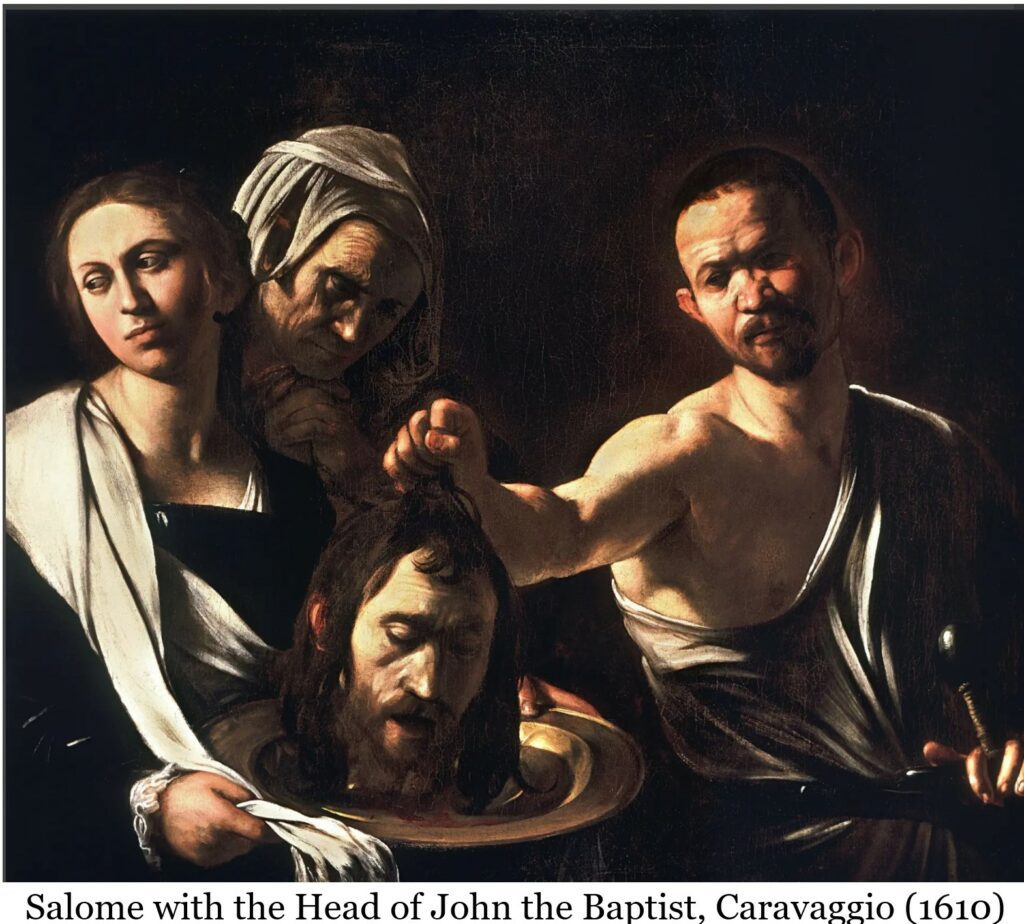John the Baptist
Willaim A. Simmons, a professor of New Testament and Greek at Lee University, wrote that “Apart from Jesus Christ, John the Baptist is probably the most theologically significant figure in the Gospels. “ He was a fiery prophet, a pivotal bridge between the Old and New Testaments, and a central character in the story of Jesus Christ.
John the Baptist was born to Zechariah, a priest, and his wife Elizabeth, a relative of Mary, the mother of Jesus. His birth, foretold by an angel, was shrouded in miraculous circumstances. John grew up in the Judean wilderness, adopting an ascetic lifestyle marked by simple clothing of camel’s hair and a diet of locusts and wild honey.He as probably a nazir (nazirite) is a person who decided to take upon him or herself a vow to live a strict and holy lifestyle. His appearance would not have been alien to Jews of that time. Retreating to a barren place and surviving on wild forage (like eating locusts) had a cultural meaning at the time.
Christians believe that John was the prophesied forerunner of Jesus, the Messiah was foretold in the Old Testament:
- “The voice of one who calls out, “Prepare the way of the LORD in the wilderness! Make a level highway in the desert for our God. Every valley shall be exalted, and every mountain and hill shall be made low. The uneven shall be made level, and the rough places a plain. The LORD’s glory shall be revealed, and all flesh shall see it together; for the mouth of the LORD has spoken it.” Isaiah 40:3-5
- “Behold, I am going to send My messenger, and he will clear the way before Me. And the Lord, whom you seek, will suddenly come to His temple; and the messenger of the covenant, in whom you delight, behold, He is coming,” says the LORD of hosts.” Malachi 3:1
Many believe that John was like the messenger Elijah written about in Malachi 4:5 (“Behold, I will send you Elijah the prophet before the coming of the great and dreadful day of the LORD.”) The supposition was correct according to Luke 1:17: “And he will go on before the Lord, in the spirit and power of Elijah, to turn the hearts of the parents to their children and the disobedient to the wisdom of the righteous—to make ready a people prepared for the Lord.”
The Baptist’s message was one of repentance and radical transformation. With searing words, he called the people of Israel to turn away from their sins and prepare for the imminent coming of the Kingdom of God. His signature act was baptism – a ritual immersion in the waters of the Jordan River symbolizing purification and renewal. John’s preaching drew large crowds, including those eager for a fresh spiritual experience and those alarmed by religious leaders who felt threatened by his influence.
John himself recognized Jesus’s divine significance and proclaimed Him as the “Lamb of God who takes away the sins of the world.” John baptized Jesus in the Jordan River, marking the beginning of Jesus’s public ministry. While John suffered during his imprisonment by Herod Antipas, his acknowledgement of Jesus remained a defining aspect of his ministry. He consistently pointed beyond himself to the One who was to come, recognizing that his own role was to decrease as Jesus’s increased.
John the Baptist’s uncompromising stance against the immorality of Herod Antipas, the ruler of Galilee, ultimately led to his brutal execution. Herod’, angered by John’s denunciation of his marriage to Herodias, his brother’s wife, had John imprisoned (Luke 3:18-20). Due to a careless promise, Herod subsequently and apparently reluctantly presented the Baptist’s severed head on a platter to his daughter. (Mark 6:14-29)
Despite his untimely demise, John the Baptist’s legacy has endured for centuries. He is revered as a saint and prophet within Christianity. Moreover, his influence extends beyond Christianity to religions like Islam, which recognizes him as the prophet Yahya. Within Christianity, his feast day, celebrated on June 24th, marks his birth and is one of the oldest saint commemorations within both Eastern and Western liturgical calendars.
Theologically, John the Baptist serves as a bridge between the era of law and prophecy in the Old Testament and the age of grace and fulfillment inaugurated by Jesus. He embodies the transition from an anticipation of a Messiah to the revelation of the Messiah in the person of Jesus Christ. John’s emphasis on repentance and his call for ethical living continue to resonate with believers, emphasizing the need for ongoing spiritual renewal.

There’s strong evidence to suggest that some Jews were initially attracted to John the Baptist’s message and became his followers. According to the Gospel of John, Andrew , one of the twelve Apostles, was a disciple of the Baptist and encountered Jesus through him (John 1:35-42). Even after his death and Jesus’s ministry, some continued to adhere to John’s teachings, a testament to the powerful impact the Baptist made on the spiritual landscape of his time. The existence of groups solely believing in John the Baptist, sometimes called Mandaeans, persisted for centuries.
John the Baptist was a towering and fascinating figure of unwavering conviction. His unadorned life, fiery preaching, and his inextricable connection to Jesus solidify his place in biblical history and his impact on the lives of believers. His life and ministry are a testament to the power of prophetic witness, the call to prepare the way for God’s redemptive work, and the sometimes-tragic price of bold faith.
